Welcome!
Below are the SAH regional chapter news updates received by the liaison during the month of February 2022.
-Amanda Roth Clark
…
To Members of the Chicago Chapter of Society of Architectural Historians,
We are presenting, with Glessner House and the Cliff Dwellers, a lecture by Warren Ashworth, author of We, the House.
In 1833 Chicago, balloon framing was an invention whose time had come. Warren Ashworth, co-author of We, the House, will explore the roots of this innovation and discuss how, by 1850, it had rapidly become the primary method of construction from Illinois westward, without which the history of this country would be much different. Ashworth will also weave in the story of one such house, Ambleside, built by his great-grandfather on the Kansas prairie in 1878. That house is the protagonist of the historical novel We, the House. If time permits, the authors will do a brief dramatic reading.
The authors of the book are Warren Ashworth and his wife, Susan Kander. Ashworth is an architect, an architectural historian and professor, and a carpenter who has built both timber-framed and stick-framed structures. He has designed, over the years, five restaurants in Chicago. Kander is a composer and librettist whose latest opera, dwb (driving while black), premiered in 2020. We, the House is their first novel. Both live in New York City.
Co-sponsored by the Chicago Chapter SAH and the Cliff Dwellers.
The program will be recorded, and all attendees will receive a link afterwards which will remain active for seven days.
Here is the link to register. https://www.glessnerhouse.org/programs/2022/04/05/if-this-house-could-talk
…
 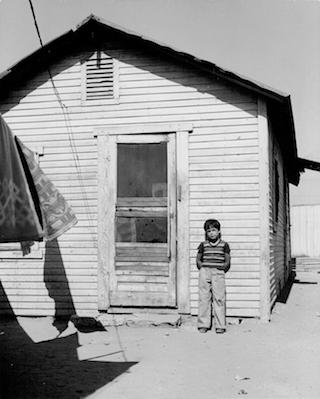 NEW EVENT!Authors on Architecture:Oest on Los Angeles Public Housing NEW EVENT!Authors on Architecture:Oest on Los Angeles Public HousingSunday, February 13th, 1:00 PM PSTNicole Krup Oest introduces her fascinating book, Photography and Modern Public Housing in Los Angeles. Can’t join in real time? Buy a ticket and receive a link to the recorded program…Buy a ticket now… .Read more |
Dear SAH-NYC,
Please find attached here our February 2022 calendar of New York area events. Most of the events listed in the SAH-NY calendar are not sponsored by our chapter, so please verify details using the contact information. You should reserve, if necessary, through the contacts listed in the calendar. To have an event listed on a future calendar, please email: jon.ritter@nyu.edu
Best regards, from, —Jon Ritter
…
 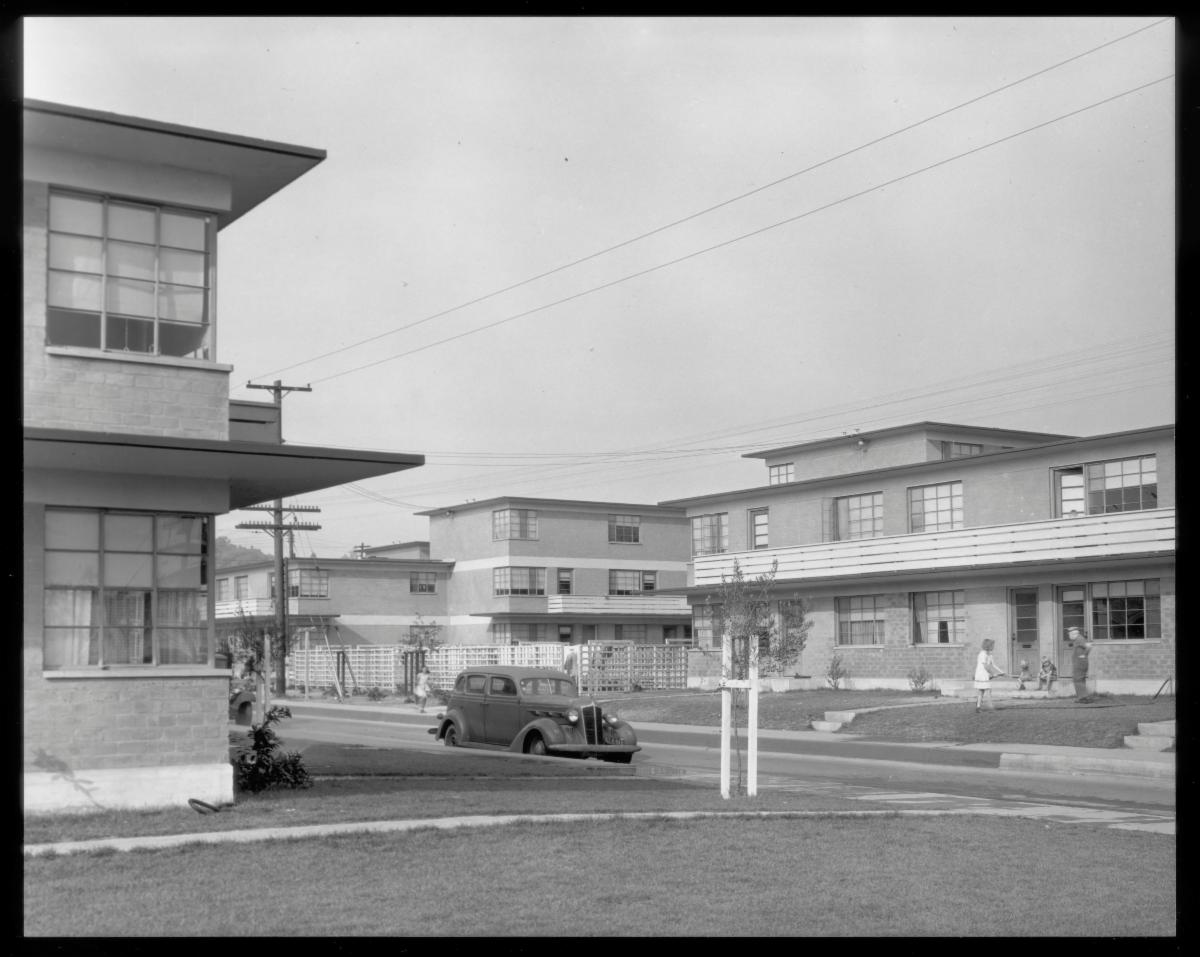 NEW EVENT!Authors on Architecture:Oest on Los Angeles Public Housing NEW EVENT!Authors on Architecture:Oest on Los Angeles Public HousingSunday, February 13th, 1:00 PM PSTNicole Krup Oest introduces her fascinating book, Photography and Modern Public Housing in Los Angeles. Can’t join in real time? Buy a ticket and receive a link to the recorded program…Buy a ticket now… Aliso Village as photographed by Julius Shulman. © J. Paul Getty Trust. Getty Research Institute, Los Angeles (2004.R.10) .Read more |
View this email in your browser  Call for Editors of Arris, the Journal of SESAH deadline extended until March 1SESAH (Southeast Chapter of the Society of Architectural Historians) seeks an Editor or Co-editors, and a Book Review Editor for three issues (2023-25) of its peer-reviewed journal, Arris. Scholars and researchers are invited to respond to this call by March 1, 2022. Editorial positions are unpaid and would begin with work on volume 34 (2023) during the summer of 2022 and end with the completion of volume 36 (2025). One of these issues may be based on a theme, chosen by the Editors and approved by the Arris Editorial Committee, that addresses particular theories, methodologies, or perspectives in the history and/or preservation of the built environment. Call for Editors of Arris, the Journal of SESAH deadline extended until March 1SESAH (Southeast Chapter of the Society of Architectural Historians) seeks an Editor or Co-editors, and a Book Review Editor for three issues (2023-25) of its peer-reviewed journal, Arris. Scholars and researchers are invited to respond to this call by March 1, 2022. Editorial positions are unpaid and would begin with work on volume 34 (2023) during the summer of 2022 and end with the completion of volume 36 (2025). One of these issues may be based on a theme, chosen by the Editors and approved by the Arris Editorial Committee, that addresses particular theories, methodologies, or perspectives in the history and/or preservation of the built environment.Founded in 1989, Arris publishes original scholarship on all aspects of the history and preservation of architecture, urbanism, and landscape. It has a particular interest in new perspectives on the American South; at the same time articles are not limited geographically or temporally. The journal consists of research articles, field notes, and book reviews. Since 2019, Arris has been published in partnership with the University of North Carolina Press (UNC Press). Issues of Arris are typically produced by a single Editor or two Co-editors who are responsible for soliciting, reviewing, and editing manuscripts, and a Book Review Editor who selects books for review and reviewers. The Editors work in collaboration to establish the content for each issue, which goes to UNC Press for production and publication. Other matters that arise in creating the journal—e.g. administrative and financial—are addressed by the Arris Editorial Committee (which includes the Editors). Communication among the Editors, UNC Press, and the Committee occurs regularly in order to facilitate the process of creating the journal. The Editor (or, in the case of Co-editors, one of the Co-editors) sits on SESAH’s Board of Directors as an ex officio voting member. Editors must maintain SESAH membership. They may reside outside its twelve-state territory. They may be academic or independent scholars, researchers, preservationists, or curators, and may be early in their professional careers as long as they have publication experience. Editors may not simultaneously hold an editorship position for another journal. Applicants should send a CV, a Letter of Interest, and names of two references to David Gobel (dgobel@scad.edu), chair of the Arris Editorial Committee, by March 1, 2022. The letter should state the position being applied for (Editor or Co-editors or Book Review Editor). It should include information on publication and/or editorial experience, a brief proposal for a themed issue (optional), and thoughts concerning future directions of Arris. Any questions may be directed to Prof. Gobel. See the website for further information on Arris and SESAH. |
 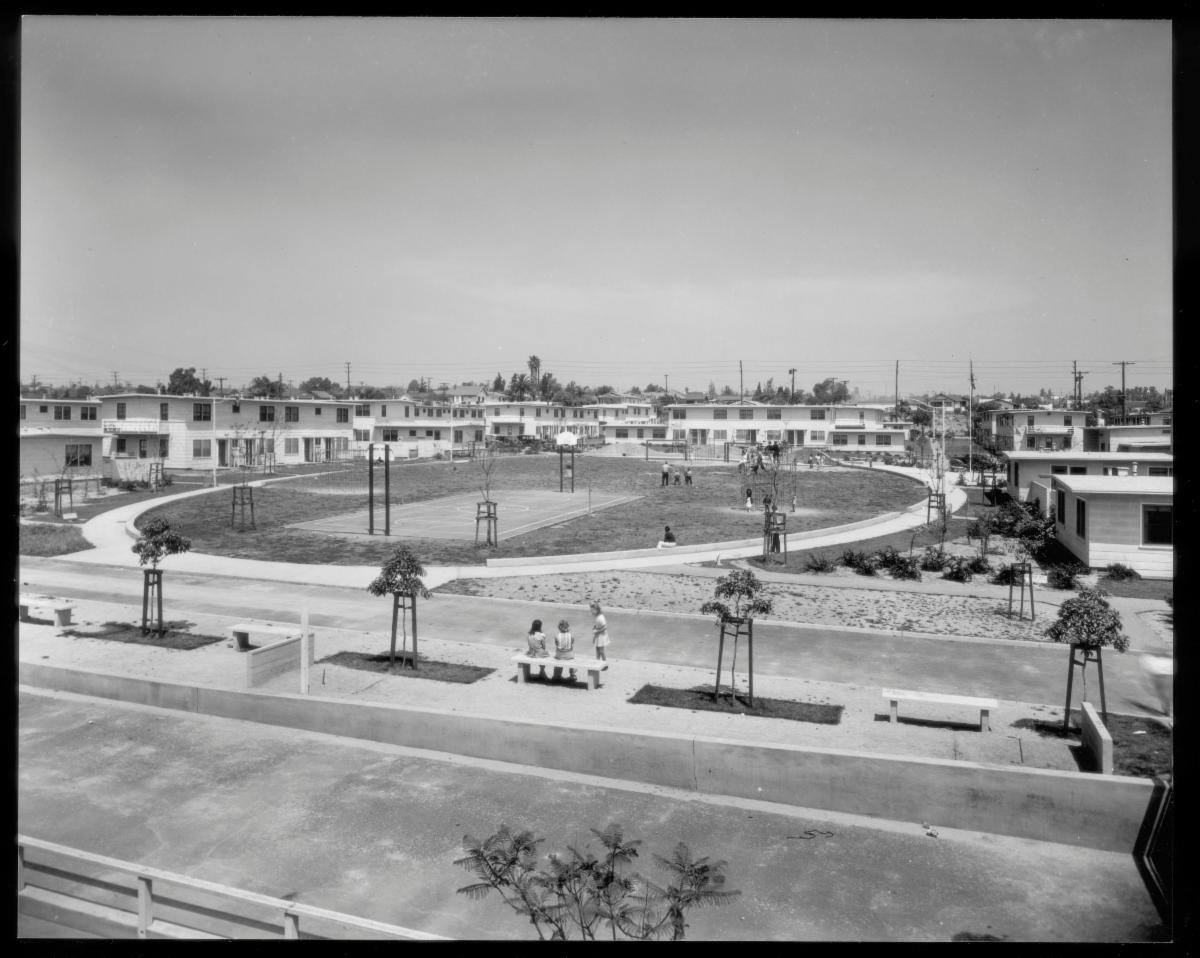 NEW EVENT!Authors on Architecture:Oest on Los Angeles Public Housing NEW EVENT!Authors on Architecture:Oest on Los Angeles Public HousingSunday, February 13th, 1:00 PM PSTNicole Krup Oest introduces her fascinating book, Photography and Modern Public Housing in Los Angeles. Can’t join in real time? Buy a ticket and receive a link to the recorded program…Buy a ticket now… Aliso Village as photographed by Julius Shulman. © J. Paul Getty Trust. Getty Research Institute, Los Angeles (2004.R.10) .Read more |
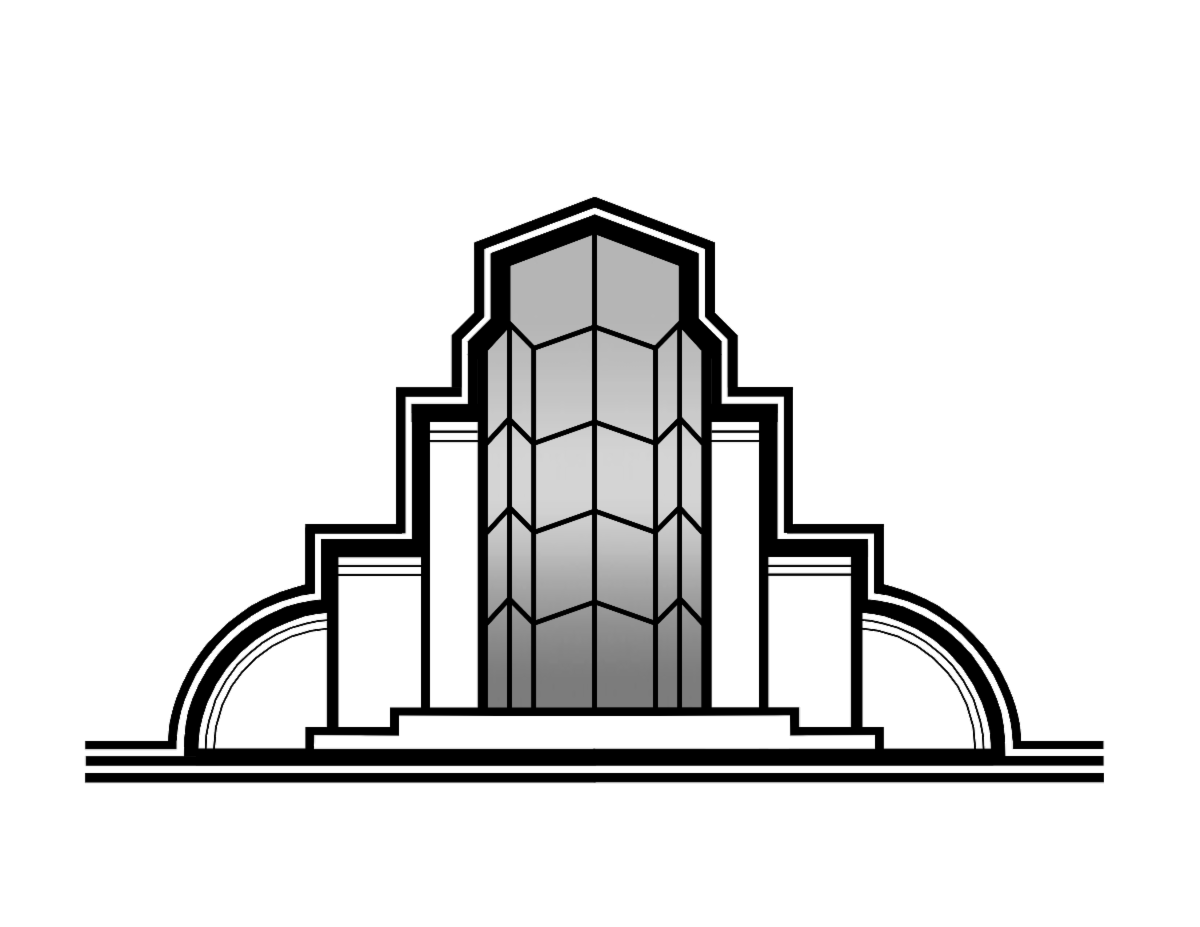
When
Monday, February 21, 2022 from 6:30 PM to 8:00 PM EST
Add to Calendar
Where
This is an online event.
ContactDebbie Chalfie
Art Deco Society of Washington
703-568-3745jlinz@adsw.org
Streamliner: How Raymond Loewy Streamlined His Persona and American Industrial Design
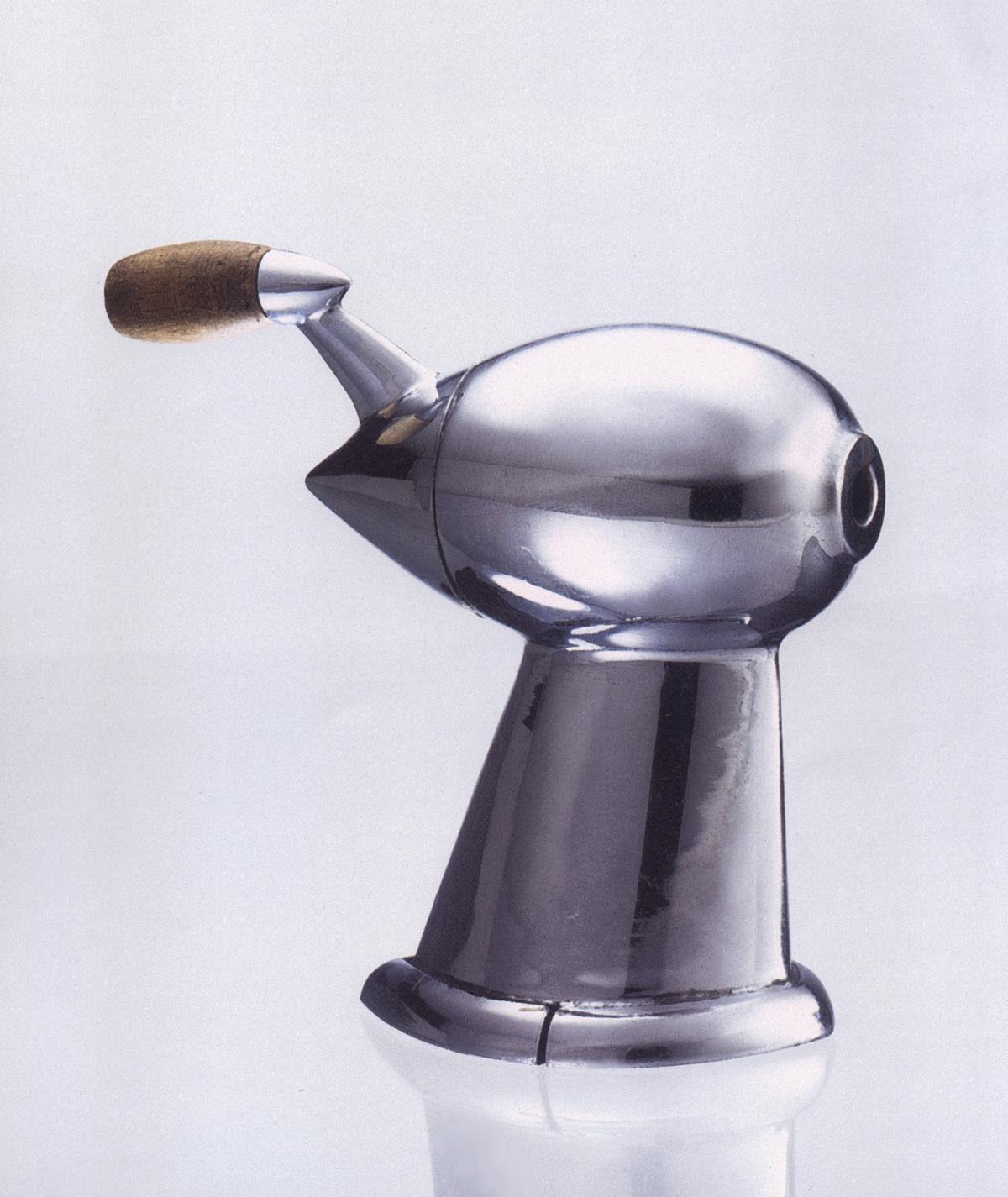

 Raymond Loewy was one of America’s greatest industrial designers, enjoying a career that spanned from the 1920s to the 1970s. He started his design career in America as an illustrator for magazines, soon establishing himself as one of the premier Art Deco artists working in New York. Within a few years, Loewy felt a desire to branch out into designing products and began his industrial design career with a Deco makeover of a duplicating machine. John Wall, author of “Streamliner,” a Loewy biography, will take us through Loewy’s early Art Deco designs and trace the influence of that movement into later designs such as locomotives and a ferry for the Pennsylvania Railroad, and Sears Coldspot refrigerators. Wall’s program will also introduce the audience to Loewy’s groundbreaking work with Studebaker and International Harvester, and his corporate logos and other work.About the PresenterJohn Wall is the author of Streamliner: Raymond Loewy and Imagemaking in the Age of American Industrial Design, published by Johns Hopkins University Press in 2018 and due out this year in paperback. Wall started his career as a journalist, and more recently worked for over two decades as a media relations professional at Penn State University’s College of Agricultural Sciences and at Juniata College. As a journalist, he reported on advertising and design, sparking an interest in Loewy’s work, which eventually resulted in authoring Streamliner. Wall is currently retired in Altoona, Pa., where he lives with his wife, Sharon. $11/ADSW Member, $16/Non-MemberMonday, February 21, 20226:30 PM EDT Register Now!
Raymond Loewy was one of America’s greatest industrial designers, enjoying a career that spanned from the 1920s to the 1970s. He started his design career in America as an illustrator for magazines, soon establishing himself as one of the premier Art Deco artists working in New York. Within a few years, Loewy felt a desire to branch out into designing products and began his industrial design career with a Deco makeover of a duplicating machine. John Wall, author of “Streamliner,” a Loewy biography, will take us through Loewy’s early Art Deco designs and trace the influence of that movement into later designs such as locomotives and a ferry for the Pennsylvania Railroad, and Sears Coldspot refrigerators. Wall’s program will also introduce the audience to Loewy’s groundbreaking work with Studebaker and International Harvester, and his corporate logos and other work.About the PresenterJohn Wall is the author of Streamliner: Raymond Loewy and Imagemaking in the Age of American Industrial Design, published by Johns Hopkins University Press in 2018 and due out this year in paperback. Wall started his career as a journalist, and more recently worked for over two decades as a media relations professional at Penn State University’s College of Agricultural Sciences and at Juniata College. As a journalist, he reported on advertising and design, sparking an interest in Loewy’s work, which eventually resulted in authoring Streamliner. Wall is currently retired in Altoona, Pa., where he lives with his wife, Sharon. $11/ADSW Member, $16/Non-MemberMonday, February 21, 20226:30 PM EDT Register Now!
…
Paris 1925: French Illustrated Books Go to the Deco Fair We are pleased to announce CADS’s upcoming Zoom event. On Wednesday, February 16th, Professor Neil Harris will be giving an illustrated presentation on Paris 1925: French Illustrated Books Go to the Deco Fair. Professor Harris is well known to CADS members, having done several previous presentations. Among his scholarly work, he has authored one of the major introductory essays for Chicago Art Deco Society’s widely acclaimed book, Art Deco Chicago, Designing Modern America. It’s particularly fulfilling when a topic of interest to CADS members is also of special interest to another cultural organization. We are pleased to co-sponsor this event with the Caxton Club, Chicago’s leading bibliophile organization. Additional information about Paris 1925: French Illustrated Books Go to the Deco Fair along with images and registration information is available on the attached event flyer. The event is free however, preregistration is required. Links to the registration page are included in the flyer. In the registration form, fill in “CADS” in the space labeled “Organization”. We are grateful to the Caxton Club for coordinating registration for both organizations. Joe Loundy & Kevin PalmerCo-Presidents
…
Click to view this email in a browser
 | FOUR Exciting Updates!1) Call for New Board Members!Do you have ideas for tours, speakers, and advocacy for the New England chapter of the Society of Architectural Historians (NESAH)? Do you want to help shape the future direction of the organization? NESAH is looking for new members for its board, and hereby issues a call for nominations and self-nominations. Potential board members should be engaged in scholarship, practice, or preservation related to the built environment, and should be motivated, dynamic, and looking to contribute to the future of our regional chapter of the Society of Architectural Historians. NESAH is a coalition of practitioners, scholars, and enthusiasts from across New England that promotes the study, interpretation, and conservation of architecture, design, landscapes, and cultural heritage for the benefit of all. Our goal is a deeper understanding and appreciation of our architectural heritage. For more information about our organization, please visit our website. To express your interest, or to nominate someone else, please send an email outlining the qualifications of the nominee, by Friday, March 11, 2022, to: nesah.president@gmail.com 2) 2022 NESAH Fellowships — DUE SOON!The New England Chapter of the Society of Architectural Historians invites applications for the Robert Rettig Student Annual Meeting Fellowship and the John Coolidge Research Fellowship. More information about each, and application details, can be found on our website. Rettig Fellowship applications are due THIS FRIDAY, February 18.Coolidge Fellowhip applications are due on March 18. Robert Rettig Student Annual Meeting Fellowship The Rettig Fellowship provides financial assistance for graduate students and emerging professionals attending the Annual International Conference of the Society of Architectural Historians (SAH). The fellowship include support of up to $500, plus a registration fee waiver. This year’s annual meeting will be held in Pittsburgh, Pennsylvania, April 27-May1, 2022. The Rettig Fellowship honors Robert B. Rettig, the founding president of the New England Chapter of the Society of Architectural Historians and an advocate for student travel to the national SAH annual meeting. From 1964 to 1971, Robert Rettig worked for the Cambridge Historical Commission, where he served as co-author and/or editor of the first three volumes of the Commission’s Survey of Architectural History in Cambridge and as author of Guide to Cambridge Architecture: Ten Walking Tours (MIT Press, 1969). From his work in Cambridge, Rettig went on to leadership positions at the Boston Landmarks Commission, the Massachusetts Historical Commission, and the National Register of Historic Places. He is an SAH Fellow and a benefactor of national SAH. John Coolidge Research Fellowship Supported by the chapter’s John Coolidge Educational Fund, the John Coolidge Research Fellowship assists graduate students at a New England college or university working on topics in architectural history, the built environment, or a related field through an award of $1,000 to support their research. The John Coolidge Research Fellowship was established following the death of Dr. John Coolidge (1913-1995), a founding member of the Society of Architectural Historians and an early member of the New England Chapter of the SAH. Professor Coolidge taught at Harvard from 1947-1984 and served as director of the Fogg Museum from 1948-1968. His book, Mill and Mansion: A Study of Architecture and Society in Lowell, Massachusetts, 1820-1865 (Columbia University Press), was among the first scholarly studies of American industrial architecture. 3) LECTURE: Sarah Horowitz, 2/28Monday, February 28, 20227:00pm “A Purposeful Monument”:Designing the Milwaukee Performing Arts Center, 1966-69 Sarah Horowitz2021 John Coolidge Fellowship Recipient Presented via ZoomFree! Pre-registration is required to attend. Please register here. The building of performing arts centers in America from the mid-1950s until the early 1970s represents a significant architectural movement to rejuvenate major cities that had fallen stagnant after World War II. The Milwaukee Center for the Performing Arts, designed by architect Harry Weese and constructed between 1966 and 1969, is one example of how the building of a performing arts center became a means by which regional leaders, architects, and engineers sought to reconcile disparate economic, social, and civic priorities through design. Considering the origins of this performing arts center project, its design program, and its effects on Milwaukee and its communities, this talk explores how the architecture of the Milwaukee Center for the Performing Arts reflects larger ambitions of urban and cultural redevelopment within postwar America. 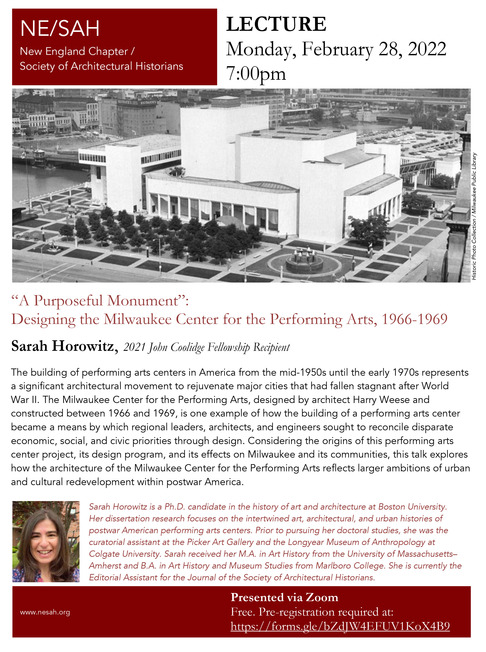 4) Annual Meeting / Directors’ NightSAVE THE DATE: Monday, March 7, 2022 — 7:00pm 4) Annual Meeting / Directors’ NightSAVE THE DATE: Monday, March 7, 2022 — 7:00pmPresented via ZoomStay tuned for full program forthcoming!NE/SAH on InstagramFollow us on Instagram, where we regularly showcase beautiful images of our region’s architecture: instagram.com/newengland_sah/ 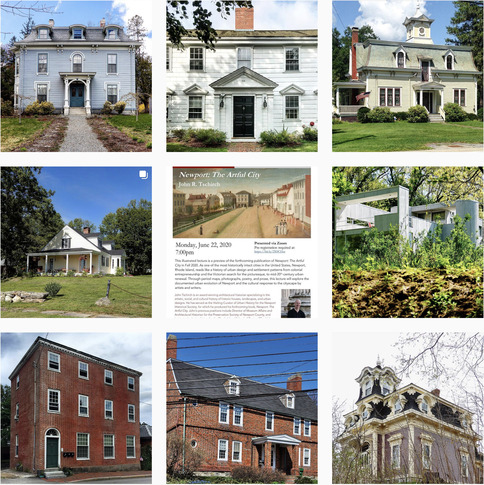 |
Chestnut Hill Conservancy presents
DISCOVERING CHESTNUT HILL TOUR & LECTURE SERIES
Recasting the Victorian Suburb: Two Young Architects at Work in Germantown
and Chestnut Hill in the 1880s
Thursday, February 24, 2022 at 7:00 pm
Virtual
This illustrated talk by Jeffrey Cohen will illuminate recent research exploring Wilson Eyre’s beginnings with the architect James Peacock Sims. Cohen teaches architectural history at Bryn Mawr College. His previous research has focused on 19th century streetscapes and on architects with significant contributions to Philadelphia’s legacy including Benjamin Latrobe, Frank Furness, and Wilson Eyre, architect of several beloved Chestnut Hill houses including The Anglecot.
Tickets: $10 members/$20 non-members
https://chconservancy.ticketleap.com/discovering-chestnut-hill-recasting-the-victorian-suburb/
Zoom link will be sent the day of the event.
More info: chconservancy.org/discovering-chestnut-hill
Living Among Landmarks: The Olmsted Legacy in Chestnut Hill
A Conversation and Exhibit
Wednesday, April 6, 2022 at 7:00 pm
Springside Chestnut Hill Academy Middle School
8000 Cherokee Street
2022 is the bicentennial of Frederick Law Olmsted—a leading cultural figure of his time and founder of the profession of landscape architecture as we know it and as it is practiced today.
Olmsted’s personal career and the practice that was his legacy flourished for more than one hundred years. He and his successors worked in virtually every state and large city in America. In Philadelphia and surrounding communities the firm secured commissions for nearly two hundred projects. At least forty of these were for clients in Chestnut Hill. Beginning in 1897, this work spanned forty years.
April 26, 2022 is Olmsted’s 200th birthday. As part of the national celebration, Chestnut Hill Conservancy will host an evening symposium, “Living among Landmarks: The Olmsted Legacy in Chestnut Hill,” featuring a conversation among current-day owners of homesteads and gardens designed by his successors in the firm of Olmsted Brothers, Landscape Architects. Olmsted biographer Witold Rybczynski will introduce the program. Before and after his remarks and the panel discussion, the audience will have access to a pin-up display of photos and plans of all the known projects from the Olmsted Brothers’ decades of involvement in Chestnut Hill.
Please note: this is an in-person event. Attendees will be asked to show proof of vaccination and wear a mask during the event. If the city changes its Covid restrictions, it may be switched to a virtual format.
Tickets: $10 members/$20 non-members
https://chconservancy.ticketleap.com/olmsted-legacy-in-chestnut-hill/
More info: chconservancy.org/discovering-chestnut-hill
***************************************************
SAVE THE DATE: FRIDAY, MARCH 11
For the Society of Architectural Historians Phila Chapter
and The Young Friends of the Preservation Alliance
2022 ARCHITECTURAL QUIZZO
Details and registration info coming soon…
***************************************************
…
View this email in your browser   SESAH Conference 2022 Call For Papers The Southeast Chapter of the Society of Architectural Historians (SESAH) will host its 40th annual conference in Memphis, Tennessee, from November 2-5, 2022. As with all SESAH conferences, papers, and sessions focused on such themes as the Landscapes and Architectural Resources of the Civil Rights Movement, Landscapes/Architecture of Minority Communities, Post-World War II Architecture in the American South, Twentieth Century Urban Planning in the American South, and the Legacy of the Southern Music Industry on the Cultural Landscape. We also expect sessions on subjects related to European, Historic, Medieval, and Southern Architecture. SESAH Conference 2022 Call For Papers The Southeast Chapter of the Society of Architectural Historians (SESAH) will host its 40th annual conference in Memphis, Tennessee, from November 2-5, 2022. As with all SESAH conferences, papers, and sessions focused on such themes as the Landscapes and Architectural Resources of the Civil Rights Movement, Landscapes/Architecture of Minority Communities, Post-World War II Architecture in the American South, Twentieth Century Urban Planning in the American South, and the Legacy of the Southern Music Industry on the Cultural Landscape. We also expect sessions on subjects related to European, Historic, Medieval, and Southern Architecture. SESAH is now accepting abstracts for individual proposals for session panels, consisting of three papers and a chair. Participants need not work in, reside in, or focus their research within the Southeast or the twelve-state SESAH region. Please submit your paper or session proposal to Mason Toms at papers@sesah.org by May 6, 2022. Additional information about submission requirements and can be found here at the SESAH webpage. Information about SESAH conference travel grants can be found here. Call for Editors of Arris, the Journal of SESAH deadline extended until March 1SESAH (Southeast Chapter of the Society of Architectural Historians) seeks an Editor or Co-editors, and a Book Review Editor for three issues (2023-25) of its peer-reviewed journal, Arris. Scholars and researchers are invited to respond to this call by March 1, 2022. Editorial positions are unpaid and would begin with work on volume 34 (2023) during the summer of 2022 and end with the completion of volume 36 (2025). One of these issues may be based on a theme, chosen by the Editors and approved by the Arris Editorial Committee, that addresses particular theories, methodologies, or perspectives in the history and/or preservation of the built environment. Founded in 1989, Arris publishes original scholarship on all aspects of the history and preservation of architecture, urbanism, and landscape. It has a particular interest in new perspectives on the American South; at the same time articles are not limited geographically or temporally. The journal consists of research articles, field notes, and book reviews. Since 2019, Arris has been published in partnership with the University of North Carolina Press (UNC Press). Issues of Arris are typically produced by a single Editor or two Co-editors who are responsible for soliciting, reviewing, and editing manuscripts, and a Book Review Editor who selects books for review and reviewers. The Editors work in collaboration to establish the content for each issue, which goes to UNC Press for production and publication. Other matters that arise in creating the journal—e.g. administrative and financial—are addressed by the Arris Editorial Committee (which includes the Editors). Communication among the Editors, UNC Press, and the Committee occurs regularly in order to facilitate the process of creating the journal. The Editor (or, in the case of Co-editors, one of the Co-editors) sits on SESAH’s Board of Directors as an ex officio voting member. Editors must maintain SESAH membership. They may reside outside its twelve-state territory. They may be academic or independent scholars, researchers, preservationists, or curators, and may be early in their professional careers as long as they have publication experience. Editors may not simultaneously hold an editorship position for another journal. Applicants should send a CV, a Letter of Interest, and names of two references to David Gobel (dgobel@scad.edu), chair of the Arris Editorial Committee, by March 1, 2022. The letter should state the position being applied for (Editor or Co-editors or Book Review Editor). It should include information on publication and/or editorial experience, a brief proposal for a themed issue (optional), and thoughts concerning future directions of Arris. Any questions may be directed to Prof. Gobel. See the website for further information on Arris and SESAH. |
| LANDSCAPE HISTORY CHAPTERof the Society of Architectural Historians |
| Dear Colleagues: As you know, the SAH 2022 Conference will be held from April 27 to May 1 in Pittsburgh. There are many brilliant panels and events, which can be found via a quick trawl through the conference guidebook. Of particular note is the Chapter Meeting, which will be held Thursday, April 28, from 1:30–2:30 pm. Chapter updates and the announcement of the 2022 Best Essay winners will top the agenda. I’ve also highlighted below conference panels that feature members of the Landscape History Chapter. The list is certainly not comprehensive, so please send any SAH panels or talks that you’d like to highlight for our colleagues. You can email me at sahlandscape@gmail.com. With kind wishes, Betsy Panels Featuring Chapter Members Apr. 28, 3–5:10 pm Mobility and Access in Modern Urban Landscapes Chair: Pollyanna Rhee Apr. 29, 8:30–10:40 am Landscape Inquiries: New Directions Chair: D. Fairchild Ruggles Apr. 29, 8:30–10:40 am Architectural (Hi)stories of Climate Change and Mobilities Chair: Fatina Abreek-Zubiedat Apr. 29, 3–5:10 pm Water: Form, Substance, and Meaning in the Landscape Chair: Ann Komara Book Announcement Jane Wolff, Bay Lexicon (McGill-Queens University Press, 2021) OFFICERS President Kathleen John-Alder Rutgers University Vice President William Coleman The Olana Partnership Secretary Royce Earnest University of Wisconsin, Milwaukee Newsletter Editor Elizabeth Athens University of Connecticut (2021-2023) Advisory Board Finola O’Kane Crimmins University College Dublin (2019-2022) John Dean Davis Ohio State University (2019-2022) Georges Farhat University of Toronto (2019-2022) Mohammad Gharipour Morgan State University (2021-2024) Margot Lystra University of Montreal (2021-2024) Stephen Whiteman The Courtauld Institute of Art (2021-2024) Jan Woudstra The University of Sheffield (2021-2024) Conferences/Symposia/Workshops Document Fever: Encounters with the Architecture of the *Colonial Architecture Archive Feb. 25, 2022, 6:15 am–12:10 pm ET This symposium focusses on the feverish encounter with the architecture of the archive that made possible these forms of research and asks how to make “privilegings, elisions, and silencing” of the “work of the archive” present, accessible, and suggestive, if at all appropriate, in the architectural *colonial archive? ASLA Iowa Spring Conference and Elwood Lecture Mar. 1, 2022, 8 am–7:30 pm CT ASLA Iowa Chapter is partnering with Iowa State University Department of Landscape Architecture to present its annual spring conference. The day will conclude with the P.H. Elwood Lecture presented by Charles Birnbaum, President of The Cultural Landscape Foundation. EAHN Biennial Conference School of Architecture of the Universidad Politécnica de Madrid June 15–19, 2022 Virtual Events Conversations on Architecture and Land in the Americas: On Trust Land Buell Center, Columbia University Feb. 24, 2022, 12 PM ET A discussion between Joseph Kunkel (Director, Sustainable Native Communities Design Lab at MASS Design Group) and Teresa Montoya (Assistant Professor of Anthropology at the University of Chicago) Conversations on Architecture and Land in the Americas: Counting Land Buell Center, Columbia University Mar. 24, 2022, 12 PM ET A conversation between Benedict Clouette (Doctoral Student in Architecture at Columbia GSAPP) and Alma Steingart (Assistant Professor in the Department of History at Columbia University) Conversations on Architecture and Land in the Americas: Making the Land Pay Buell Center, Columbia University Apr. 7, 2022, 12 PM ET A conversation between Stéphanie Barral (Sociologist at the French National Institute for Agronomic and Environmental Research) and Timothy Mitchell (William B. Ransford Professor of Middle Eastern, South Asian, and African Studies at Columbia University) CFPs Cities as Archives: Historical Stratigraphies and Visual Cultures of the Built Environment across the Horn of Africa, East Africa and Regions Beyond Submission deadline: March 1, 2022 The panel seeks to shed new light on cities as archives of past encounters exposing historical layers through the visual cultures pertaining to the built environment of hubs of exchange in the Horn of Africa, East Africa, and connected regions. It interrogates marine networks and interrelations with the hinterland expressed in the built environment, considering both land and sea routes as spaces of artistic transmission. The unique position of these cities enables a discussion of mobility, and artistic entanglements across different temporalities and geographies. It also provides insights into transcultural and transnational connections, and colonial appropriations of the networks in which these cities are embedded. We invite respondents to consider the following: building typologies, the use of language when describing spaces and their construction, city morphology, mobility of construction workers, exchanges of buildings techniques, importation and exportation of materials, and fauna and flora ecological exchanges in urban spaces. Please send your proposal to: Vera-Simone Schulz: vera-simone.schulz@khi.fi.it Suha Hasan: suha.hasan@abe.kth.se The Progressive City: Wright & his Chicago Contemporaries Submission deadline: March 16, 2022 Chicago around 1900 was a laboratory of progressive reforms and Wright, during these years, was part of group of designers and activists increasingly alarmed by crippling widespread social inequality, public health crises, and lack of access to education, nature and affordable housing. The United States, and the Midwest in particular, was experiencing explosive growth due to the rise of industrial capitalism following the 1893 Chicago World’s Fair. The Progressive movement sought to provide better living conditions for all classes of society. The breadth of progressive reforms imagined often led to ambitious urban planning schemes. The 1893 Fair, for example, offered an alternative vision of modern cities that incorporated numerous infrastructural innovations, spaces for recreation and rationalized circulation patterns, among many improvements, later taken up by Daniel Burnham in his 1909 Plan of Chicago. Wright, together with his progressive peers, explored various planning schemes, from coordinated suburban blocks to neighborhood units, that countered the monumentality of the City Beautiful with a smaller-scale approach echoing the Garden City movement. Other interventions included the construction of playgrounds, parks, recreation centers and public schools across the city, while environmentalists founded conservation groups and designed landscapes sensitive to local ecologies. Please submit proposals online at savewright.org/proposals. Notification will be sent in early April 2022. Grants/Fellowships The Architectural League of New York, Independent Projects Grants Application deadline: Apr. 13, 2022 The Architecture + Design Independent Projects grant program is a partnership between the New York State Council on the Arts and The Architectural League of New York, awarding grants for New York State-based individuals and teams to explore a design topic through creation or research. In the 2022 cycle, this program will award 18 grants of $10,000 to proposals in design fields, including architecture, landscape architecture, historic preservation, community-centered design, fashion, graphic, industrial, and interior design. SAH American Architecture and Landscape Field Trip Grants Application deadline: June 1, 2022 The SAH American Architecture and Landscape Field Trip grant program funds awe-inspiring architectural and landscape field trips for students in grades 3–12 from under-resourced communities. To provide students with firsthand experiences and hands-on knowledge about the history of the built environment, SAH partners with nonprofit organizations throughout the U.S. that offer youth design education programs and docent-led tours of architecture, parks, gardens, neighborhoods, and town/city centers. SAH welcomes applications from a wide variety of nonprofits including architectural and cultural heritage organizations, house museums, creative placemaking sites, schools of architecture with youth outreach programs, and arts and architecture high schools. Priority will be given to community-based educational programs that focus on marginalized histories that reflect the lived experiences of students and foster meaningful engagement with the built environment in which they live. Applications are reviewed on a rolling basis. Notification of grant awards will be made within six weeks. Open Positions McHarg Fellowship, University of Pennsylvania Application deadline: Feb. 28, 2022, 5 pm ET The McHarg Fellowship is a new $75,000 award given by the McHarge Center for Urbanism and Ecology to an emerging voice in landscape architecture and its related fields. The Fellowship will be awarded competitively on an annual basis and the fellow is expected to be in residence at Weitzman (in Philadelphia) full-time for one academic year from the beginning of the Fall semester (August) through to the end of the Spring semester (May) in the following year. The purpose of the Fellowship is to create a breakthrough opportunity for an emerging professional and/or academic, who would benefit most from support to conduct research, to teach, and to be mentored by faculty over the term of the fellowship. Open rank in Landscape Architecture, Ecological Restoration, Temple University Application deadline: Feb. 28, 2022 Assistant Professor of Landscape Architecture, University of Virginia Application review begins Mar. 1, 2022 Assistant Teaching Professor of Landscape Architecture, Penn State Application deadline: Apr. 1, 2022 Have something to share in the newsletter? Click Here Image: Russell Smith (1812–1896), The Aqueduct, Pittsburgh (detail), ca. 1832, oil on wood panel, 9 3/4 x 13 inches. Collection of the Carnegie Museum of Art (68.1.2). |
Society of Architectural Historians Philadelphia Chapter & Young Friends of the Preservation Alliance present
ARCHITECTURAL QUIZZO
This event will be held virtually via Zoom.
Friday, March 11 2022, 6:30 PM — 8:30 PM
What’s the oldest highway bridge in the United States? What well-known Philadelphia architect is interred in the Tennessee state capitol building? If you know the answers, and even if you don’t, join us for our second Architectural Quizzo! Sign up individually, or better yet with friends, to test your knowledge of work by Philadelphia architects in other places, surrounding counties, and Philadelphia folklore.
You’ll work in teams to answer five exciting rounds of questions – with prizes for the winning team! (NOTE: you do not have to form a team, in order to make this a truly social event and introduce you to potential new friends you will be assigned to a team after you register.)
Free for members (plus 1 guest) of the Philadelphia Chapter SAH, or the Preservation Alliance for Greater Philadelphia, and of the Young Friends of the Preservation Alliance.
$5 for non-members.
Registration requested by March 4 at
https://25017.blackbaudhosting.com/25017/Architectural-Quizzo
Co-sponsored by the Philadelphia Chapter, Society of Architectural Historians and the Young Friends of the Preservation Alliance for Greater Philadelphia.
…
Click to view this email in a browser
 | 2022 Annual Meeting/Directors’ Night POSTPONEDThe NESAH Annual Meeting/Directors’ Night, previously scheduled for Monday, March 7, has been POSTPONED to Monday, March 28, at 7pm. Please see below for event details, and don’t forget to register!Our 2022 Annual Meeting/Directors’ Night, will feature two presentations. Pre-registration for this Zoom event is required to attend! Please register here.* A brief business meeting will precede the lecture. * PLEASE NOTE: THE REGISTRATION LINK ABOVE WAS INCORRECT IN THE PREVIOUS EMAIL. Please use the link above, or manually enter the link from the poster below, to register for this event. 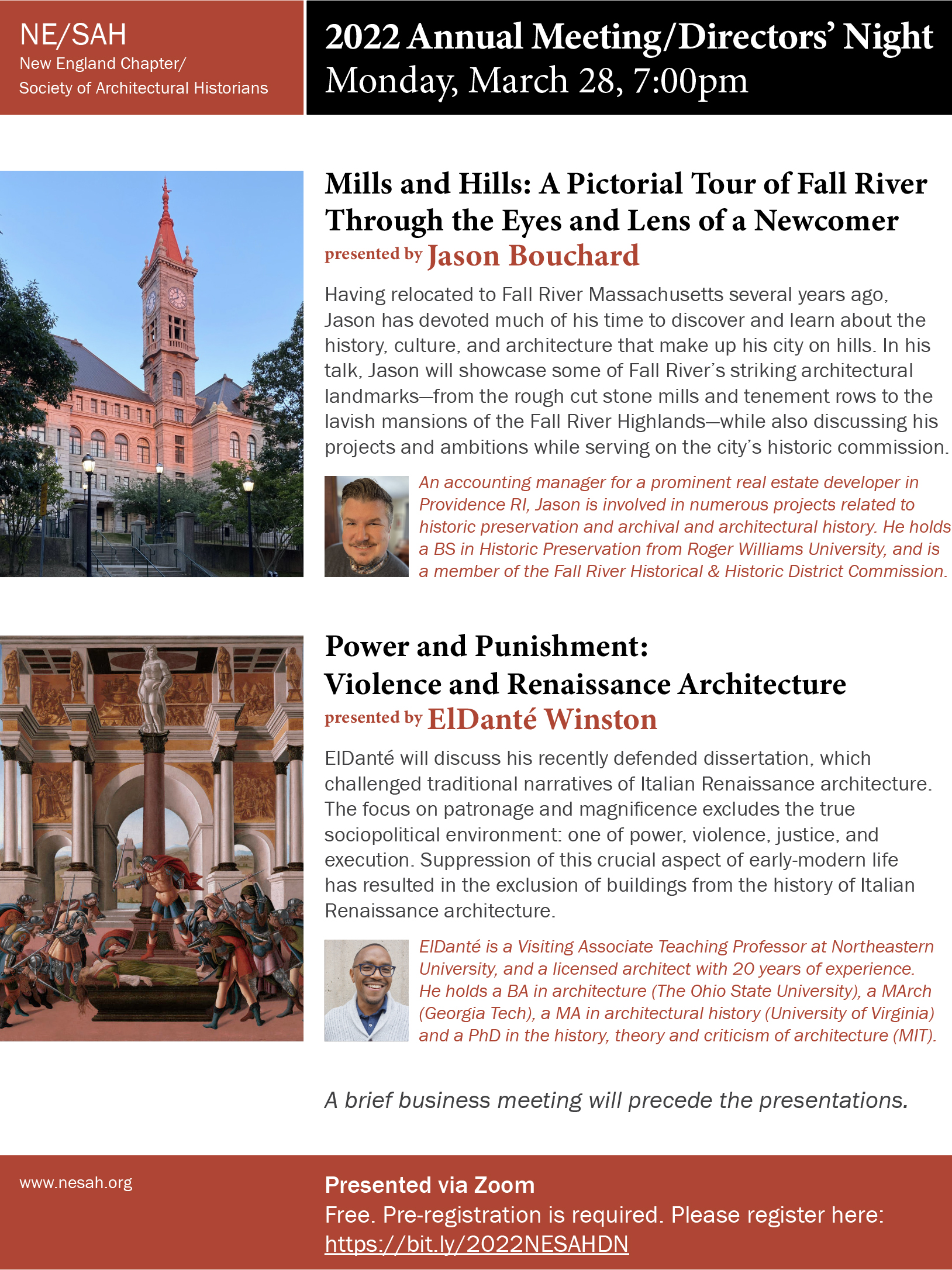 NE/SAH on InstagramFollow us on Instagram, where we regularly showcase beautiful images of our region’s architecture: instagram.com/newengland_sah/ NE/SAH on InstagramFollow us on Instagram, where we regularly showcase beautiful images of our region’s architecture: instagram.com/newengland_sah/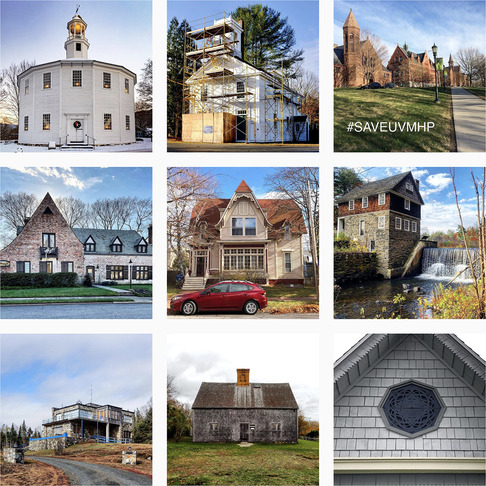 |
Click to view this email in a browser
 | 2022 Annual Meeting/Directors’ Night POSTPONEDThe NESAH Annual Meeting/Directors’ Night, previously scheduled for Monday, March 7, has been POSTPONED to Monday, March 28, at 7pm. Please see below for event details, and don’t forget to register!Our 2022 Annual Meeting/Directors’ Night, will feature two presentations. Pre-registration for this Zoom event is required to attend! Please register here.* A brief business meeting will precede the lecture. * PLEASE NOTE: THE REGISTRATION LINK ABOVE WAS INCORRECT IN THE PREVIOUS EMAIL. Please use the link above, or manually enter the link from the poster below, to register for this event.  NE/SAH on InstagramFollow us on Instagram, where we regularly showcase beautiful images of our region’s architecture: instagram.com/newengland_sah/ NE/SAH on InstagramFollow us on Instagram, where we regularly showcase beautiful images of our region’s architecture: instagram.com/newengland_sah/ |